When Roger Crutchley retired from the Bangkok Post a few years ago, you
might have thought you had finally got rid of him. But now he’s written a book
might have thought you had finally got rid of him. But now he’s written a book
| APART from his PostScript column which still appears every Sunday, he has been working on a book. It has taken a little while, but is finally being released this month, entitled The Long Winding Road To Nakhon Nowhere, and it really was a long road. The book covers his overland journey from England to Thailand in 1969 and his early experiences in the Land of Smiles, first as a teacher and then as a journalist at the Bangkok Post where he worked for four decades. The BigChilli sat down to talk with him about the book to be launched at the Foreign Correspondents Club (FCCT) on May 9th. | This isn’t your first book? No, I’ve had a couple published which were basically compilations from the Sunday column. The first was simply called PostScript and the second entitled Forgotten But Not Gone. Actually the title was probably the best part of the second book, although it did discuss important issues like squashed lizards, dancing policemen, pickled parrots and men with bald heads. They were great fun to compile, although they weren’t exactly best-sellers. | What prompted you to write this third book? Over the years, many people I have met expressed interest in the fact I travelled overland from England to Thailand in the days when you could do that sort of thing. They also wanted to know what it was like living in Thailand in the 1970s and how much it had changed since. So I thought it might be an idea to write about the trip and my early experiences in the kingdom. Initially, it was just going to be a kind of travelogue, but it developed into more than that, with lots of personal experiences. |
| There follows a couple of chapters on adapting to life in Thailand and working as a teacher, before joining the Bangkok Post in November 1969. Not surprisingly, the newspaper features heavily throughout the book, and there are two chapters specifically on life at the Post, first at the Rajdamnoen office and then the U-Chuliang. So can we call it your memoirs? Not really, as it only concerns a certain period of my life. You could say it’s a partial memoir. It picks up when I was about 21, working in London, and first getting the wanderlust. I didn’t want to bore people with tales of my childhood. Equally, I didn’t want to dwell much on my later years which would probably send most readers to sleep. The book concentrates on the 1970s and 80s before tourists overran the country. They were exciting times for me as it felt like I was experiencing something new almost every day. I still am, for that matter. I haven’t included much on recent times because just about everyone on the planet has visited Thailand now and they don’t need me to tell them about the delights of the kingdom. |
| What made you decide to stay in Thailand? Actually, when I set off from London on an old bus, I had no intention of coming to Thailand. I was aiming for New Delhi and then going on to Australia. It didn’t quite work out that way. I think you call it fate, or to be more accurate, bad planning. So when I arrived here, I was regrettably quite ignorant about the kingdom. Some might argue I still am. But the people of Thailand were the biggest influence on me staying. They were so welcoming and friendly, and from the first few days in Bangkok, despite the sweltering April heat, I immediately felt comfortable. Whatever people say these days, those smiles worked a treat. | Give us a rough idea of the contents There are 26 chapters in all. The first four deal with the overland trip. It was quite an experience and something I’ve never forgotten. I didn’t know anybody on the bus, but after a while became friendly with another Englishman, Clarence Shettlesworth. We travelled through more than a dozen countries, and it became more intriguing the further we ventured into Asia. Afghanistan was quite extraordinary, and so was Nepal but in a different way. It was freezing cold all the way to Afghanistan, particularly in eastern Turkey, and sometimes the drivers had to light a fire under the bus to melt the frozen diesel oil. The buses eventually broke down in the middle of the Afghan desert so Clarence and I, along with a couple of the girls from the bus, carried on for the rest of the journey making our own way. | It’s not something you would want to do by yourself. Clarence, incidentally, is still in Thailand living in Chiang Mai. There follows a couple of chapters on adapting to life in Thailand and working as a teacher, before joining the Bangkok Post in November 1969. Not surprisingly, the newspaper features heavily throughout the book, and there are two chapters specifically on life at the Post, first at the Rajdamnoen office and then the U-Chuliang. The first dozen chapters are roughly chronological after which there are assorted topics, primarily anecdotes about travelling around the kingdom. Some of those trips to the provinces were very rewarding owing to the natural friendliness of the people. They were wonderful times. I experience some form of culture shock in just about every chapter. |
| | You must have a good memory Fortunately, I kept a diary in 1969, which I still possess, so for the whole of that year, I know exactly where I was on what day. Much of the diary is trivia at its most trivial. I wouldn’t let anyone else read it. However, I wish I had continued with some sort of daily journal. These days I can’t remember what happened yesterday. What about the nightlife? Yes, there’s plenty of that in the book - probably a bit too much. It’s mainly about the early days when I didn’t have a clue what was going on. It certainly was a bit different to my hometown in Berkshire. My introduction to Bangkok’s nightlife was the old Mosquito bar down by the docks. That was an eye-opener. I particularly enjoyed the New Petchburi Road strip, especially all the bands which catered for GIs on R&R from Vietnam. It was heaving until hostilities ended in 1975. Any serious stuff? Nearly all the book is written in what I hope is a lighthearted style similar to the PostScript columns. However, there is one sobering chapter about the events of Oct 14, 1973, and Oct 6, 1976, which definitely cannot be treated in a frivolous manner. I witnessed both events and have attempted to convey just how traumatic those times were. They are not particularly pleasant memories, although Oct 14 was in a way inspiring. How about your maid, Ms Yasothon? She’s got a whole chapter, God bless her, and probably deserves more. She sadly died back in 2003, but her husband Noi still looks after our house and garden, and he’s a lovely chap. I have happy memories of Tong (Ms Yasothon), and I think it rubbed off on readers. I wrote a tribute to her in the Bangkok Post the week after she died and was overwhelmed with emails of condolences from around the globe. It was very moving. She would never have any idea she had such a following. Any particular moments in the book that bring back fond memories? As a teacher singing an impromptu ‘Simon Says’ with a class of 12-year-old in what was supposed to be an English lesson - that was great fun. The tale of the haunted house which became my first (and last) front-page story; the ‘capture’ and release of the black panther, Ai Dum, a classic Thai tale if ever there was one. And the look of bewilderment on Ms Yasothon’s face when a PostScript reader asked for her autograph, a lovely moment. |
| You must have a special attachment to the Bangkok Post having worked there for most of your life? We are actually the same age, the Post and I, established in 1946. When I joined we were a sprightly 23, so we have sort of grown up together. Even in the months before I joined the Post, I used to buy it every day. It cost two baht and was a very good read. You have to remember that it was in the days before satellite news, so the newspaper was a key source of information. The local TV news was pretty grim. Admittedly my main reason for buying the paper was to catch up on the sports news back in England, particularly the football. But I also felt it had an excellent balance of home and international news, something that still exists to this day. | Bangkok has changed considerably since you arrived. Please give us some less obvious examples of those changes. Something many people have forgotten is that until the 1980s most taxis in Bangkok had no air conditioning unless you counted the holes in the floor. Those old Bluebird rattletraps felt like tin saunas, but when you let the windows down, it also let the fumes in. They had meters which never worked and were only used by cabbies to hang their hats on. Also in the early 1970s wherever you walked in Bangkok little kids would ambush you with “hey you, one baht”, later to become “hey you, five baht”. That doesn’t happen anymore, well not to me. I also miss the traditional sounds of the sois – the comforting sounds of the night watchman patrolling the soi striking a bell every hour after midnight; the kuay teow seller with his booming but somehow melodic voice (now it’s a pick-up with awful loudspeakers); and the icecream man with his little bell. We’ve still got stray dogs, however. That won’t change. | With the Vietnam War raging in your early years in Thailand, did you ever fear for your future - or indeed Thailand’s future? The Bangkok Post provided excellent coverage of the war, so we were all alert to the situation. I was never really worried about my future, but in the early 1970s, I was concerned about what could happen to Thailand. Many people feared the ‘Domino Theory’, believing that Thailand would suffer the same fate as Laos and Cambodia and be overrun by the Communists. I am convinced that the people’s love for His Majesty King Bhumibol Adulyadej united Thailand and played a major role in the kingdom holding firm, especially in the vulnerable Northeast. |
| Is it true that Bangkok’s expat community in the early 70s was so small that everybody knew just about everyone else? It was not exactly a village, but if you went out at night, you could almost guarantee you would run into several people you knew. I played a lot of football in those days and was often bumping into people I played against, and we invariably ended up having drinks together - Germans, Swiss, Scandinavians, Italians, French and Thais. It was wonderful. I made so many friends from different nationalities. However, it was almost impossible to have a discreet date - there would always be someone you knew showing up at the quietest of places. | Who else has been involved in the book? Several people have been very helpful. My old friend John Leicester has done an excellent editing job and has been very patient with all the delays. Then there are friends and former Post colleagues Tony Waltham and Peter Finucane who came through when my memory was found lacking. Danny Speight has also been very supportive, and his work on the production side has been invaluable. And of course my late dog, Toby, who proved to be a very good listener in my more fragile moments. Is there another book in the works? While reading the proofs of the current book recently, I realised how much I had left out, so you never know. |
The Long Winding Road to Nakhon Nowhere is available at Kinokuniya bookstores, on Amazon.com as both printed and eBook formats or contact [email protected]

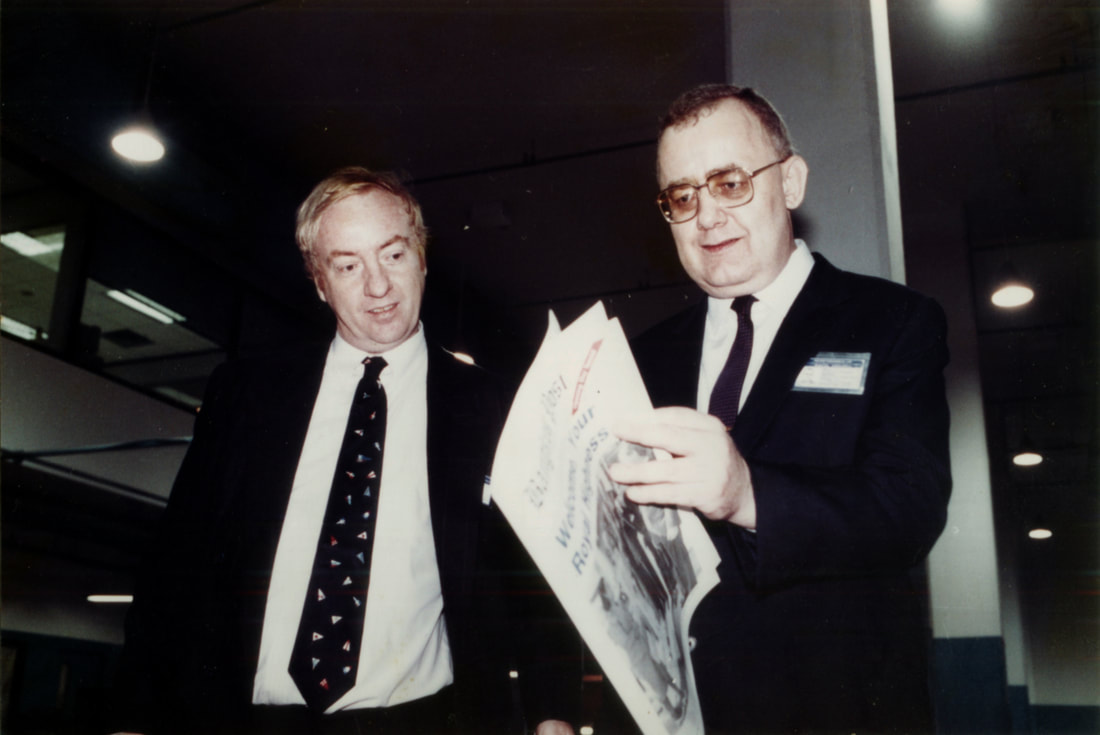
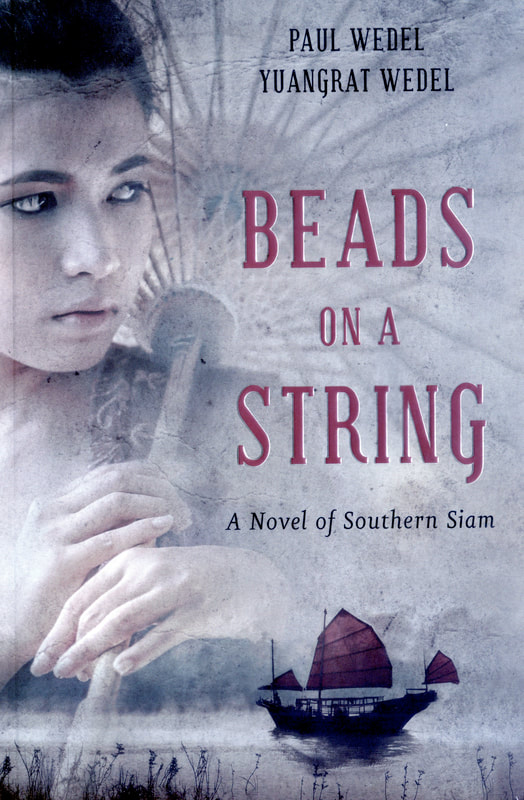
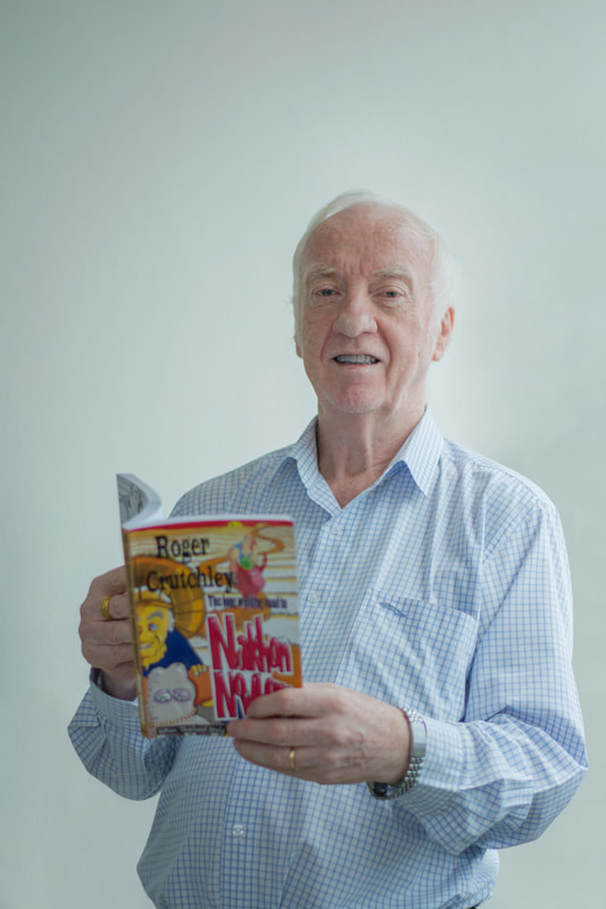
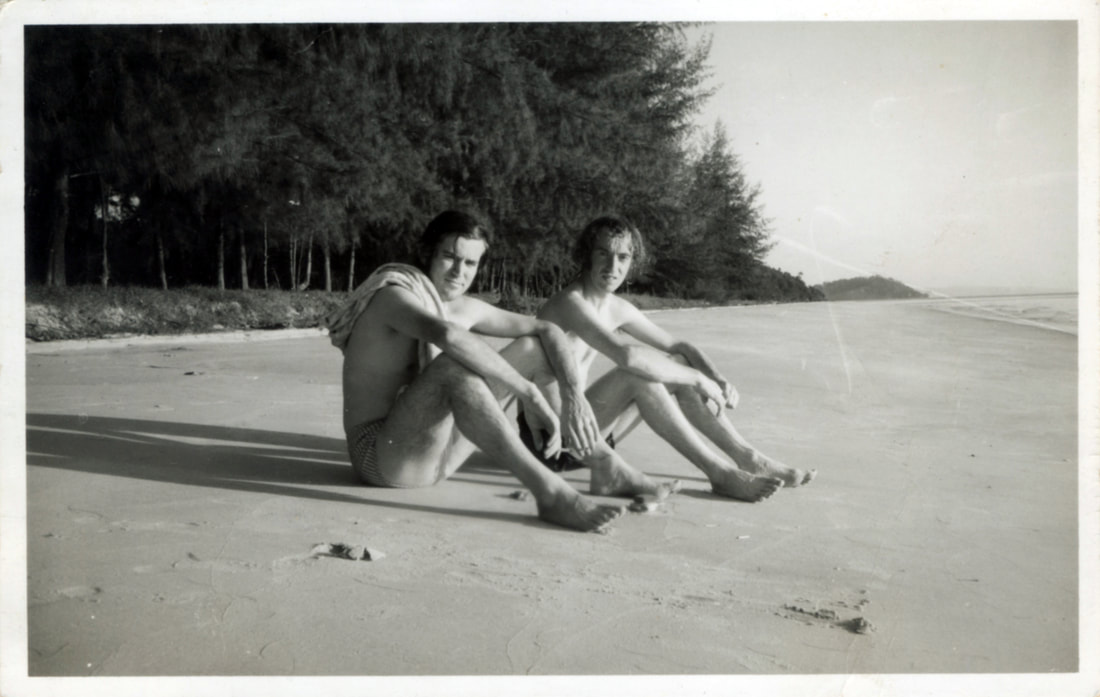
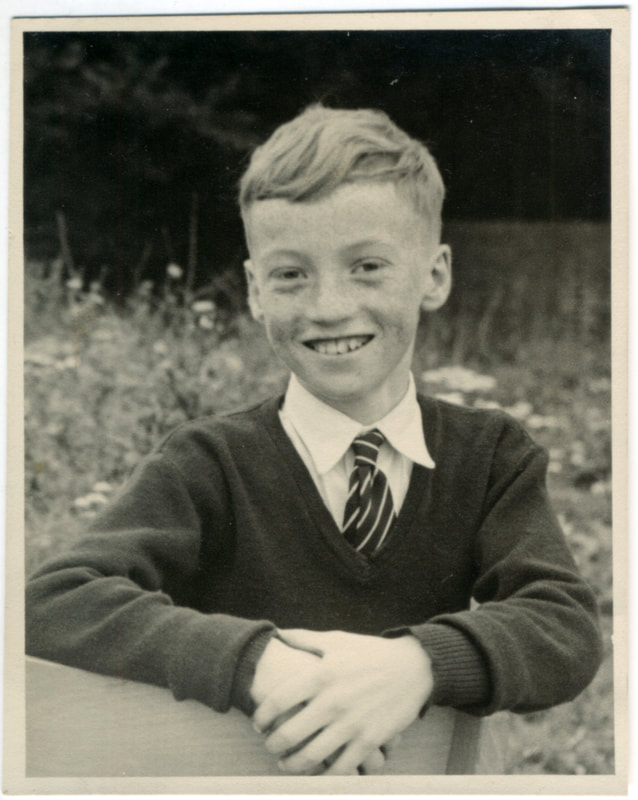
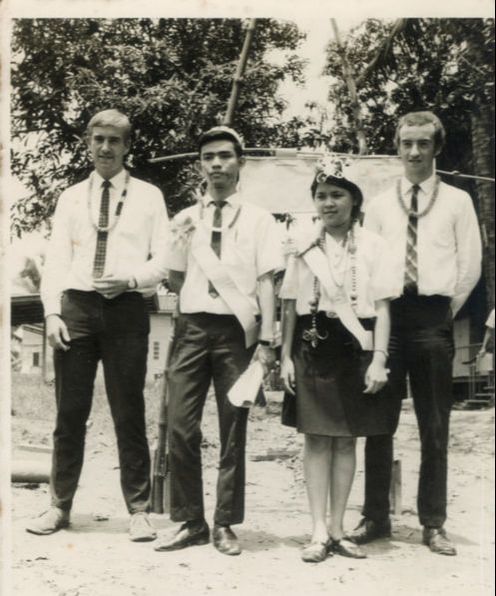
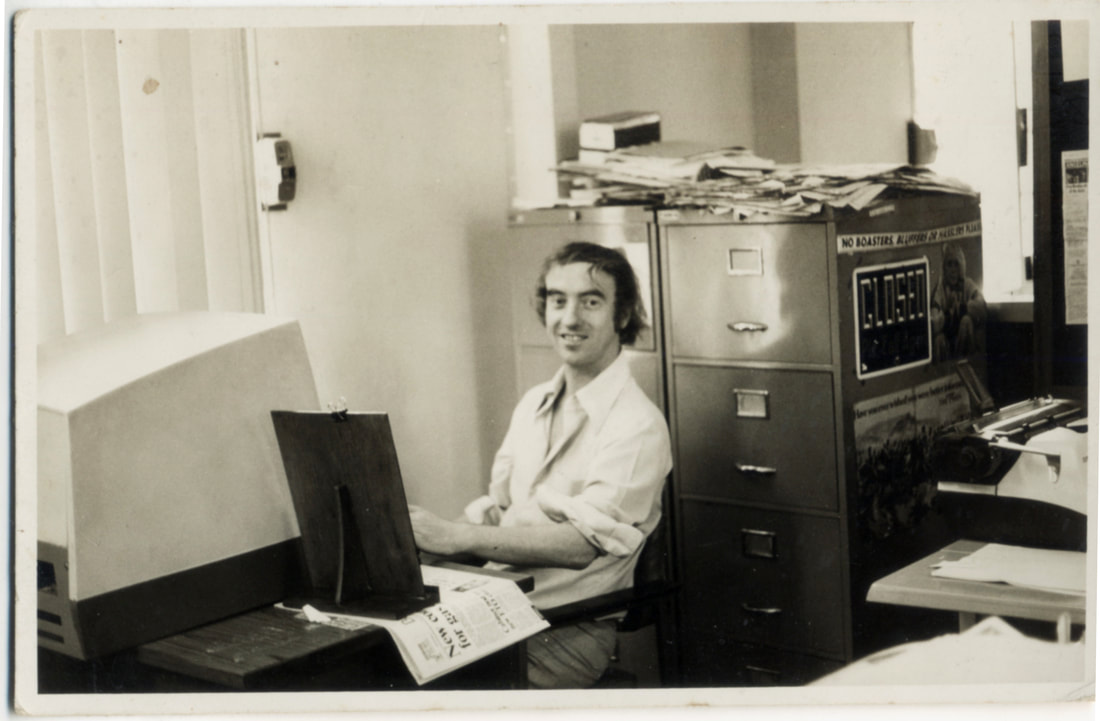
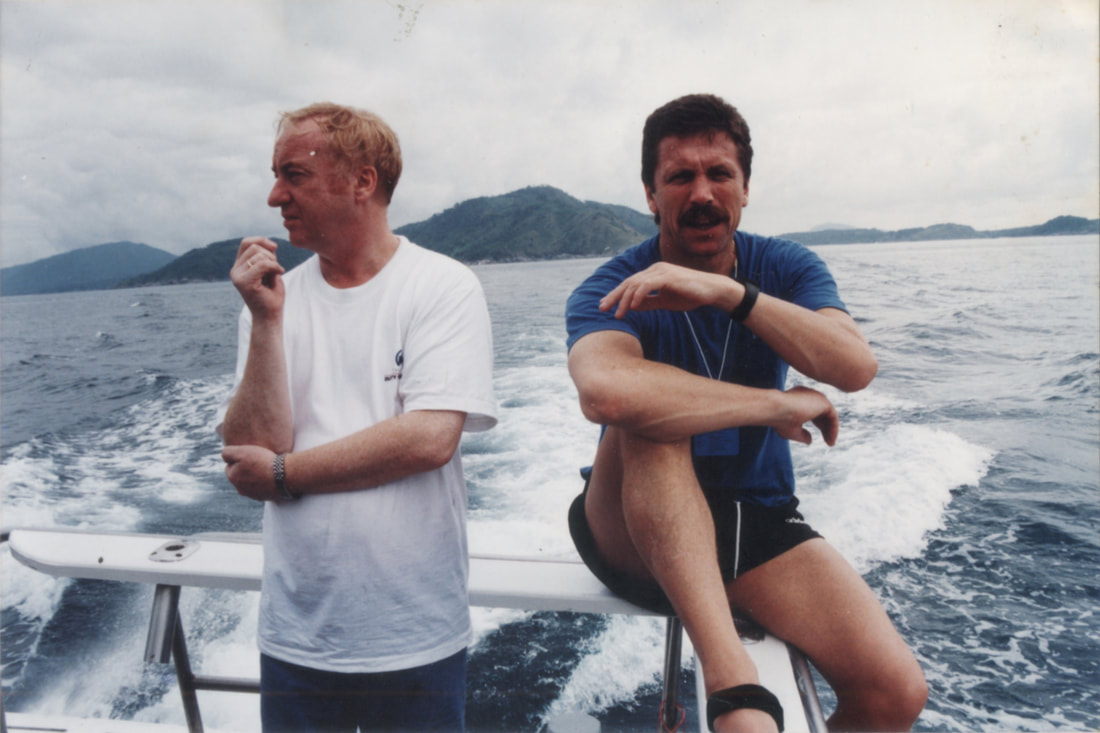
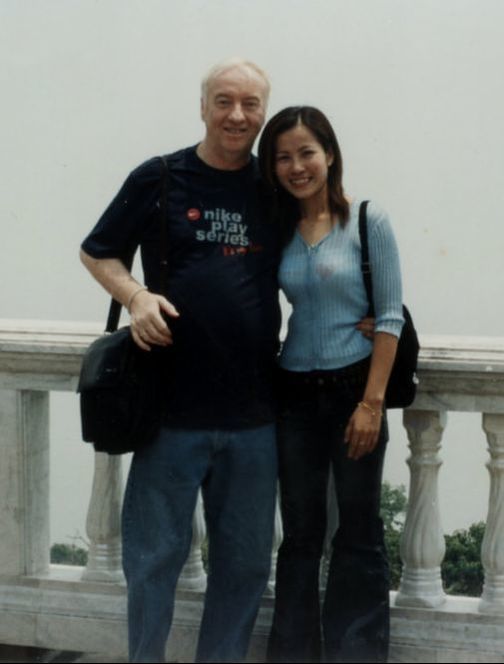
 RSS Feed
RSS Feed
















